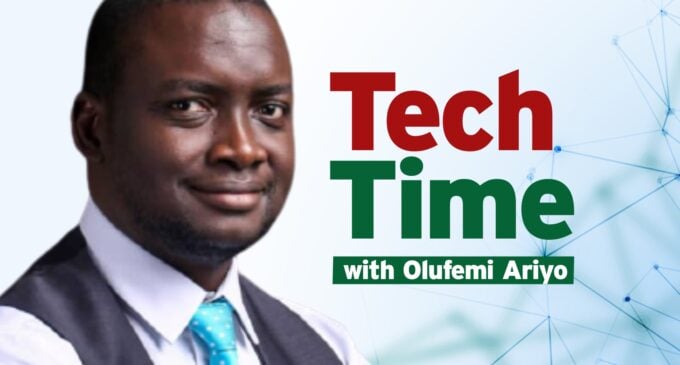The Internet of Things, Internet of Behavior, and thinking machines in the future of workplace

We just arrived at the future of work, where technology is seamlessly woven into our everyday lives. The Internet of Things (IoT), Internet of Behavior (IoB), and thinking machines are giving us new narratives as we interact with our surroundings and reshape the workplace for an everywhere-you-go experience. From interconnected devices to data-driven insights, and then machines that make contributions, we will explore how these advancements are creating new conversations on the future landscape of work.
The Internet of Things (IoT) is a concept that refers to the network of physical objects embedded with sensors, software, and connectivity capabilities. These objects can range from everyday appliances like refrigerators and thermostats to industrial machinery and even vehicles. The key idea behind IoT is that these devices can collect and exchange data over the Internet without human intervention – machines in an ongoing intelligent conversation.
By connecting these devices, IoT enables seamless communication between them, allowing for automation, monitoring, and control. For example, imagine a smart home where you can adjust your temperature regulator remotely or have your coffee machine start brewing before you even step out of bed.
But it doesn’t stop there – IoT has immense potential in various industries as well. In healthcare, it can enable remote patient monitoring systems or wearable health trackers that provide valuable insights for personalized care. In manufacturing, IoT can optimize production processes by collecting real-time data on machines’ performance and predicting maintenance needs.
The Internet of Things opens up a world of possibilities by enabling smarter interactions between people and their environment through interconnected devices. It is transforming not just how we live but also how we work across different sectors – from improving efficiency to enhancing safety measures. The future truly belongs to the Internet of Things! At this point, we will delve into the Internet of Behavior.
The Internet of Behavior (IoB) is an emerging concept that explores the connection between technology, data, and human behavior. It extends beyond the traditional realm of IoT by focusing on how our actions and behaviors are tracked, analyzed, and used to influence our experiences in predictable ways.
At its core, IoB involves capturing vast amounts of data from various sources such as wearable devices, social media platforms, sensors in smart homes or offices, and even public surveillance systems. This data is then processed using advanced analytics techniques to derive meaningful insights about individual preferences and behaviors.
With IoB in place, organizations can gain a deeper understanding of their customer’s behaviors and tailor their products or services accordingly. For example, retailers can use customer purchase patterns to offer personalized recommendations or targeted promotions. Similarly, employers may leverage employee behavioral data to optimize workplace productivity or enhance employee well-being.
However, it is important to consider the ethical implications surrounding the Internet of Behavior. The collection and analysis of personal data raise concerns about privacy invasion and potential misuse. Striking a balance between leveraging behavior insights for positive outcomes while respecting individuals’ rights will be crucial as we navigate this evolving landscape.
The Internet of Behavior represents a shift towards a more personalized approach driven by behavioral insights. By harnessing this power responsibly and ethically, organizations can unlock new opportunities for innovation while enhancing customer experiences in an increasingly connected world.
That said, what exactly are thinking machines? They are intelligent systems that can mimic human cognitive abilities, such as learning, reasoning, and problem-solving. These machines can process vast amounts of data at incredible speeds and make decisions based on patterns and algorithms.
Thinking machines utilize advanced technologies like artificial intelligence (AI) and machine learning to perform tasks that traditionally required human intelligence. They can analyze complex data sets, identify patterns, recognize speech or images, and even predict future outcomes.
One example of a thinking machine is IBM’s Watson, which gained fame for winning the game show Jeopardy! in 2011. Watson demonstrated its ability to understand natural language queries and provide accurate answers within seconds.
Thinking machines have the potential to drastically improve various industries by seamlessly automating repetitive tasks, augmenting human capabilities, and solving complex problems. In healthcare, they can assist doctors in diagnosing diseases more accurately and suggest personalized treatment plans based on patient data. In the business world, thinking machines can streamline operations by analyzing large volumes of customer data to improve marketing strategies or optimize supply chain management processes.
However, concerns about job displacement arise with the rise of thinking machines. While these technologies may eliminate some jobs that involve repetitive tasks or basic decision-making processes, they also create new opportunities for humans to focus on higher-level skills such as creativity and critical thinking.
Overall, thinking machines are transforming the way we work by enabling faster decision-making processes, improving efficiency, and unlocking new possibilities through AI-powered automation. As this technology continues to evolve, it will be crucial for organizations to adapt their workforce and embrace collaboration between humans and intelligent systems in order to thrive in an increasingly digital workplace.
The Internet of Things, the Internet of Behavior, and thinking machines are redefining the way we work and the world of work. These interconnected technologies have the potential to greatly impact the future of work and transform various industries – beyond currently estimable measures.
With the Internet of Things (IoT), everyday objects are becoming smarter and more connected. From smart thermostats that adjust the temperature based on occupancy patterns to wearable devices that track employee productivity and health numbers, IoT enables greater efficiency and automation in the workplace. This can result in cost savings, improved resource management, and enhanced overall productivity.
The Internet of Behavior (IoB) takes this connectivity a step further by analyzing data from IoT devices to influence human behavior. By understanding patterns and preferences, IoB can personalize experiences for employees, partners, and customers, leading to increased satisfaction and engagement. For example, companies can use IoB to tailor training programs or optimize work schedules based on individual needs – every human is at a different operational capacity.
Thinking machines, such as artificial intelligence (AI) systems powered by machine learning algorithms, have the ability to analyze vast amounts of data quickly and make informed decisions. They can automate repetitive tasks like data entry or customer support inquiries while freeing up employees’ time for more complex problem-solving tasks that require human creativity and emotional intelligence.
In addition to automating mundane tasks, thinking machines also offer valuable insights through advanced analytics. They can help businesses identify trends, and predict market demands or consumer behavior more accurately which could inform strategic decision-making processes.
However incredible these advancements may sound; there are concerns about security and privacy issues related to collecting personal data through IoT devices or AI-powered systems making decisions without proper transparency or accountability measures in place.
It is clear that with careful consideration for ethical implications; the combination of IoT, IoB, and Thinking Machines has immense potential to reshape our workplaces and unlock new opportunities for innovation and growth in various industries.
In conclusion, in this increasingly interconnected world, the Internet of Things, the Internet of Behavior, and thinking machines are set to revolutionize the future of the workplace. As we continue to advance technologically, these concepts will play a crucial role in shaping how we work and interact with technology.
Firstly, the Internet of Things enables devices to communicate and share data seamlessly, allowing for greater automation and efficiency in various industries. IoT has already made significant strides in transforming our daily lives, from smart homes to smart cities. In the workplace, IoT can enhance productivity by automating routine tasks and providing real-time insights into operations.
Additionally, the Internet of Behavior takes this connectivity a step further by analyzing data from various sources such as social media, wearable devices, and surveillance systems. This valuable information can be used to understand human behavior patterns and make informed decisions that benefit both individuals and organizations. By leveraging IoB technology, businesses can create personalized experiences for their customers while also optimizing their internal processes.
Lastly, thinking machines or artificial intelligence have long been depicted as robots that think like humans in science fiction films. While we may not have fully autonomous AI beings just yet, AI is already making waves in industries such as healthcare, finance, manufacturing, and customer service. With advancements in machine learning algorithms, computer vision, and natural language processing capabilities, AI-powered systems are becoming more adept at performing complex tasks once reserved for humans. This opens up new possibilities for streamlining workflows, automating repetitive tasks, and enhancing decision-making processes within organizations.
The impact of these technological advancements on the future of work cannot be underestimated. Jobs will evolve as automation replaces certain tasks while generating new opportunities that require uniquely human skills like creativity, problem-solving, and emotional intelligence. It is important for individuals to adapt to these changing dynamics by acquiring relevant skills through education and training programs focused on emerging technologies.
Moreover, businesses must embrace digital transformation strategies that fuse and leverage IoT, IoB, and thinking machines to stay competitive in an increasingly digital world.
Thank you for letting me slide into your thought space. Please follow my Medium: https://medium.com/@roariyo (for this and over ninety of my curated thoughts) and LinkedIn: https://www.linkedin.com/in/olufemi-ariyo-923ba6130/ or send an email to [email protected]
















There are no comments at the moment, do you want to add one?
Write a comment